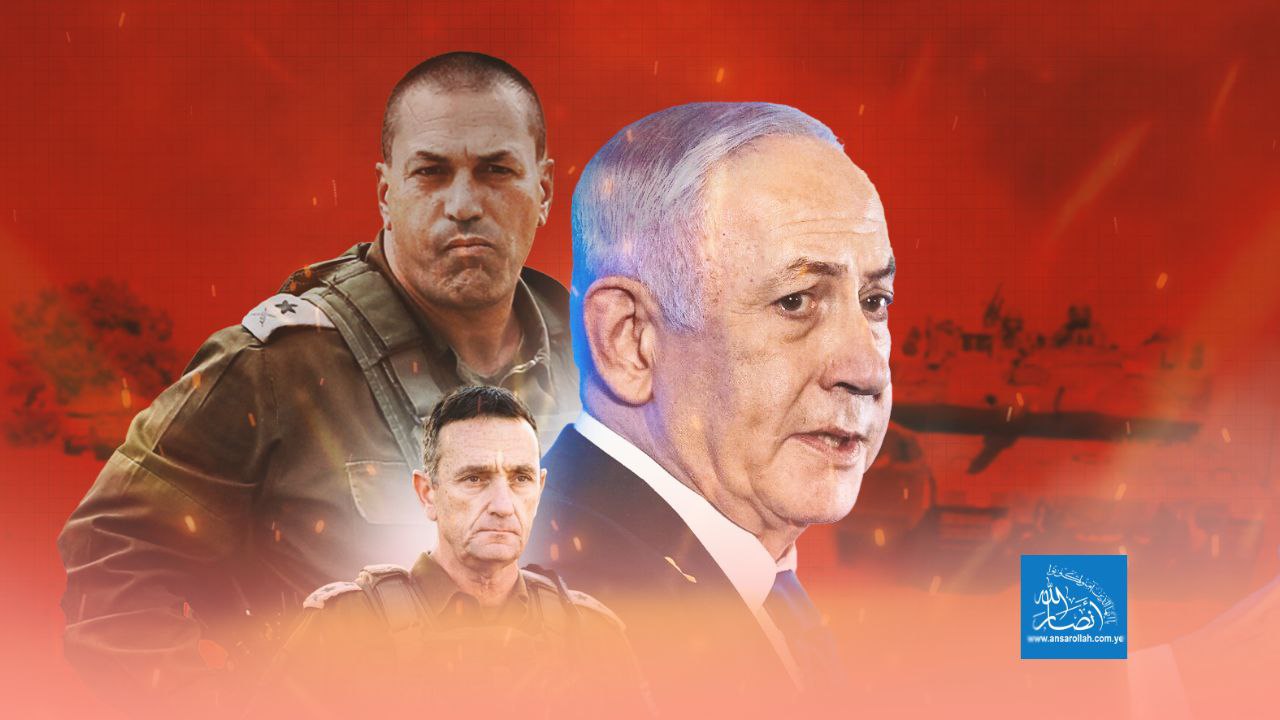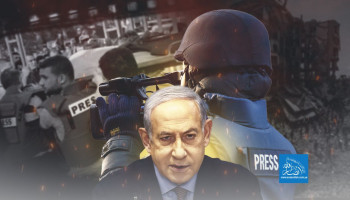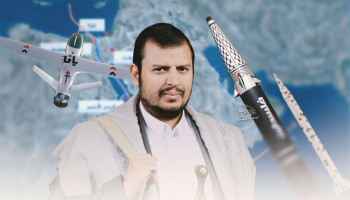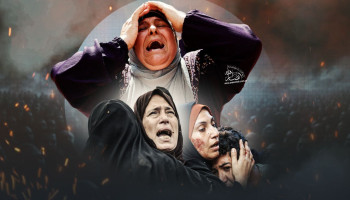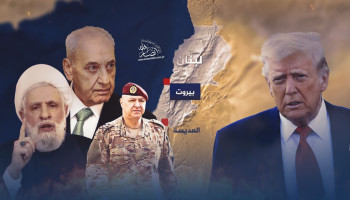Ansarollah Website. Report | Ali Al-Darwani
Press reports revealed escalating disagreements between the criminal Israeli Prime Minister Benjamin Netanyahu and his senior military commanders regarding the course of military operations in the Gaza Strip, ahead of a crucial meeting of the Security Cabinet last week, which subsequently approved a plan for what they call the occupation of Gaza.
Dissimilar Options on the Table
Before the meeting, the enemy leadership discussed two main paths: a complete occupation of the Strip, the preferred option of Netanyahu and his allies on the extreme right, or a limited operation that would include besieging resistance areas and intensifying airstrikes, as proposed by Chief of Staff Eyal Zamir and a number of senior officers, with the aim of minimizing losses and avoiding the burden of administering the Strip.
Ultimately, a solution was reached between the two parties, including the invasion of Gaza City—considered, according to war criminals, the last urban resistance stronghold outside Zionist control. This would mean occupying an additional 10% of the Strip's territory and confining the population to the remaining approximately 15% of the Strip's area. According to the decision, the operation would be carried out gradually and with less than half the forces required for a full occupation. The plan includes evacuating approximately one million civilians by September, which poses brutal challenges and repercussions for the population, given the limited shelter space available. War criminals are not concerned with this as much as they are with further pressure and the goal of forced displacement from the Gaza Strip.
Deep Disagreements
Under pressure from Israeli military leaders and officers, Netanyahu backed away from previous promises—including his statements to Fox News about "reclaiming Gaza completely"—which angered his right-wing allies, Smotrich and Ben-Gvir. Nimrod Novick, a former advisor to Prime Minister Shimon Peres, believes this represents a rare instance in which the security establishment has imposed effective restrictions on government decisions.
New Conflict Over Military Appointments
In a further indication of the depth of the crisis, a public dispute erupted between Israeli Defense Minister Yoav Katz and Chief of Staff Eyal Zamir over who has the authority to make appointments in the military. Katz accused Zamir of holding a meeting on appointments without prior coordination or approval, asserting that "the military leadership is subject to the directives of the Minister of Defense." The army responded with an official statement saying that "the Chief of Staff decides on appointments," and that the discussion was pre-scheduled and aimed at promoting field commanders on the battlefronts.
The media squabbling continued with an additional statement from the IDF confirming that the authority to appoint colonels and above begins with the Chief of Staff and is then presented to the minister for approval or rejection. Katz responded again, emphasizing that the established procedure requires him to participate in selecting candidates, threatening to reject some appointments related to the Gaza front before a "Hamas decision" is reached.
Opposition leader Yair Lapid commented on the crisis, saying, "In this crazy government, even a fundamental event like the appointment of officers to the army does not pass without leaks, quarrels, and accusations. That's not how a country is run and that's not how an army is led."
Military Readiness Crisis
In addition to the political and military disputes, a new IDF assessment revealed serious gaps in field preparation.
According to what Israel's Channel 12 revealed, the army is short by an estimated 10,000 soldiers—including 7,000 combat personnel and 3,000 combat support personnel—in addition to gaps in the readiness of tanks and armored personnel carriers due to a shortage of spare parts.
This shortage is partly due to an undeclared ban on certain supplies from abroad, including engines imported from Germany and transmissions that have been in operation for 22 months of continuous fighting.
The report indicated that maintaining full readiness has become difficult, affecting timelines and operational planning, especially in light of the political echelon's demands to prepare for a new operation in Gaza.
Opposition leader Yair Lapid commented on these data, saying: The army is saying clearly: We don't have enough fighters to carry out missions and maintain Israel's security. Meanwhile, Netanyahu continues to encourage mass desertion.
Humanitarian and Diplomatic Dimensions
The brutal war of extermination that has been ongoing for 22 months has resulted in the deaths of more than 61,000 Palestinians, while it is believed that 20 Israeli prisoners remain held in Gaza.
The blockade imposed since March has exacerbated the humanitarian crisis, leading to widespread hunger. The death toll from the enemy government's systematic starvation has risen to more than 270, including more than 100 children.
Regarding the "livelihood martyrs," the Gaza Health Ministry reported that in a single day, it recorded 29 martyrs and 127 injuries while attempting to obtain aid, bringing the total to 1,807 martyrs and more than 13,021 injuries.
The White House acknowledged that air aid was an unrealistic option, as airdrops would not even come close to meeting the needs of the 2.1 million Palestinian population. Despite this admission, "it was not part of the discussions," according to media agencies, citing a US official who requested anonymity. He confirmed that "the matter was not up for serious discussion, because it is not a serious option at this stage."
On the international level, Germany dealt a diplomatic blow to the entity by announcing a halt to the export of military equipment that could be used in Gaza, deepening the Israeli military's fears of a deterioration in Israel's global reputation.
Media Tension and Targeting Journalists
Daily leaks revealed pressure from Netanyahu's ministers to take complete control of the Gaza Strip, in response to Zamir's warnings of the consequences. National Security Minister Itamar Ben-Gvir and Netanyahu's son attacked the army leadership, accusing it of attempting a "military coup." Meanwhile, a number of retired military and security leaders appeared in a video clip calling on Netanyahu to end the war.
Meanwhile, Palestinian journalist Anas al-Sharif was killed in a deliberate Israeli bombardment of Gaza City, becoming one of 237 Palestinian journalists killed since the outbreak of the war, according to the Government Media Office in Gaza.
The summary
These developments reveal that Israel is experiencing one of its deepest internal crises in decades, with political divisions intersecting with sharp military disputes, at a time when international pressure is mounting and the humanitarian catastrophe in Gaza is worsening. While Netanyahu and his government continue their policies of war and displacement, the army's readiness and Israel's image in the eyes of international public opinion are deteriorating ,which opens the door to further political isolation and internal erosion, even as the Palestinian people remain steadfast and committed to their right to their land and freedom.

